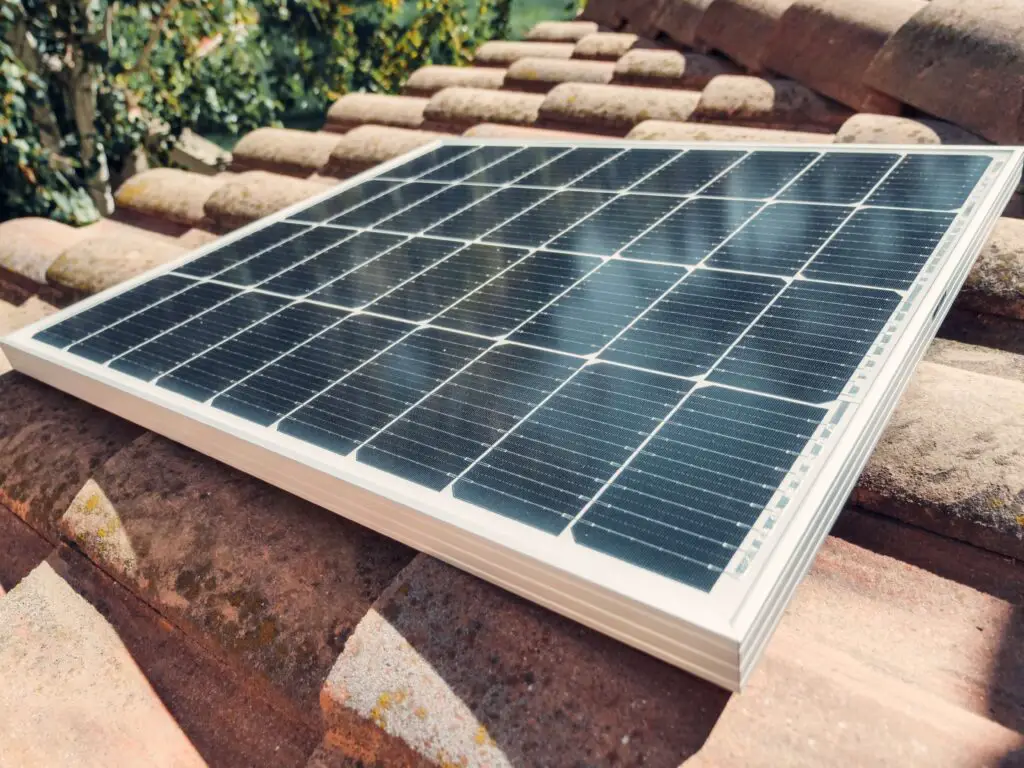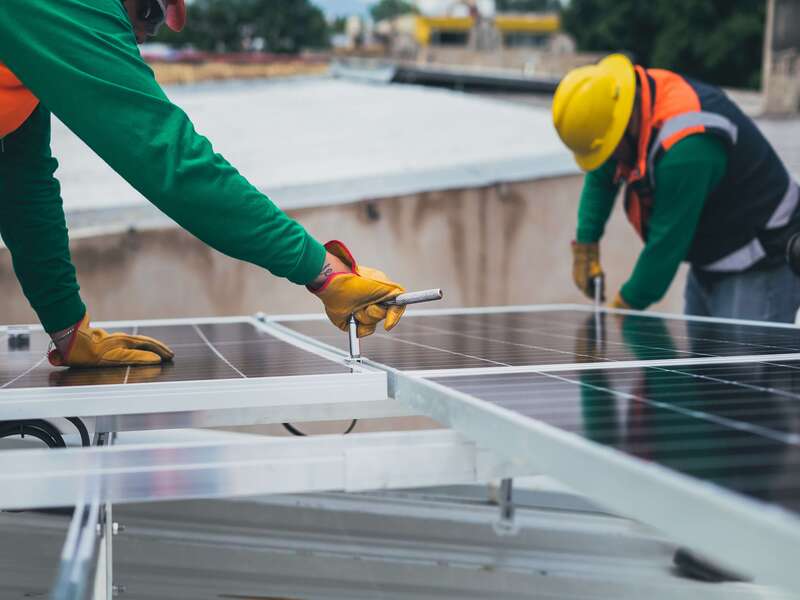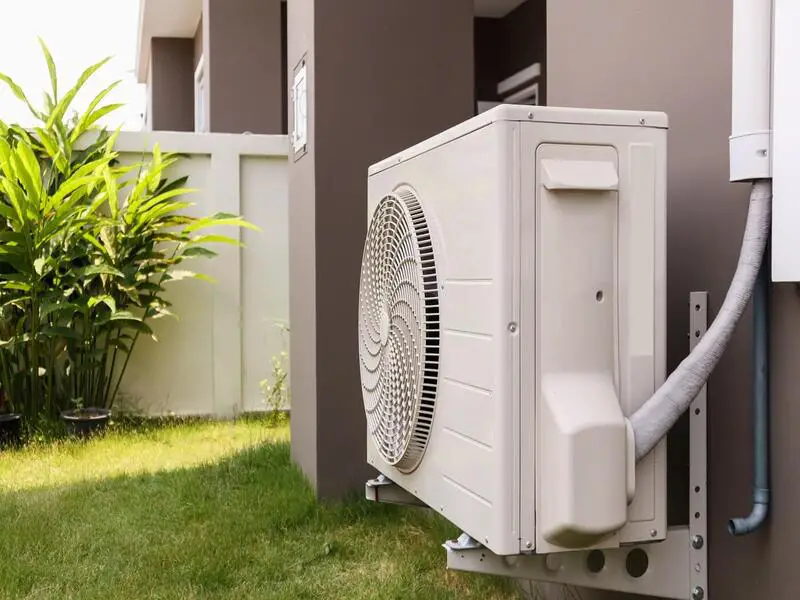Solar energy has become increasingly popular in recent years, and for good reason. In addition to being a renewable and sustainable energy source, solar energy can help reduce energy bills and contribute to a cleaner and healthier future. In this article, we will discuss the importance of solar energy at home and how you can start taking advantage of this technology in your own residence.
What is Solar Energy?
Solar energy is a type of renewable energy that is generated from the sun’s rays. The sun emits energy in the form of electromagnetic radiation, including visible light, ultraviolet radiation, and infrared radiation. This radiation can be harnessed and converted into usable electricity through the use of solar panels.
Solar panels are made up of photovoltaic cells, which are usually made of silicon. When sunlight hits these cells, electrons are knocked loose from their atoms and create an electrical current. This electrical current can be stored in batteries or fed directly into the power grid, depending on the needs of the user.
There are two main types of solar energy systems: photovoltaic and thermal. Photovoltaic systems convert sunlight directly into electricity, while thermal systems use sunlight to heat a fluid, which then generates electricity.
Solar energy is a clean and renewable source of energy that does not produce harmful emissions or pollutants. As such, it is becoming an increasingly popular alternative to traditional sources of energy, such as coal and oil. In addition to its environmental benefits, solar energy can also help homeowners save money on their energy bills and increase their energy independence.
Overall, solar energy is a promising source of renewable energy that has the potential to play a significant role in meeting the world’s energy needs in a sustainable and environmentally friendly way.
Why is Solar Energy Important?
Solar energy is becoming increasingly important as the world strives to reduce its reliance on fossil fuels and transition towards cleaner, more sustainable sources of energy. Here are some of the key reasons why solar energy is important:
- Renewable and Sustainable One of the main advantages of solar energy is that it is a renewable and sustainable energy source. Unlike fossil fuels such as coal and oil, which are finite and will eventually run out, the sun’s energy is inexhaustible. This means that solar energy has the potential to provide a reliable and long-term solution to our energy needs.
In addition, solar energy does not emit any greenhouse gases or other atmospheric pollutants. This helps reduce a home’s carbon footprint and contributes to a cleaner and healthier future.
- Cost Savings Another important benefit of solar energy is that it can help reduce energy bills, especially in the long run. While the initial installation cost of solar panels can be high, once they are installed, they can generate electricity for decades with little or no maintenance. This can lead to significant cost savings over time, making solar energy a wise investment for homeowners.
- Increased Home Value Finally, solar energy can increase the value of a home. With the growing demand for solar energy, many buyers are willing to pay more for a home that already has solar panels installed. This can make a home more attractive to potential buyers and help homeowners recoup some of their initial investment.
How does Solar Energy Work at Home?
Solar energy works at home by utilizing solar panels, which are installed on the roof or in another area that receives a lot of sunlight. These panels are made up of photovoltaic cells that absorb sunlight and convert it into direct current (DC) electricity. This electrical current is then sent to an inverter, which converts the DC electricity into alternating current (AC) electricity, which is used to power most electrical devices in the home.
The electricity produced by the solar panels can be used directly in the home, reducing the amount of energy that needs to be purchased from the power grid. This means that homeowners can save money on their electricity bills by generating their own electricity. In addition, excess energy generated by the solar panels can be sent back to the power grid through a process called net metering. This means that homeowners can receive credits for the excess energy they generate, which can be used to offset their future energy bills.
To maximize the benefits of solar energy, it is important to have a solar system that is appropriately sized for the home’s energy needs. This requires a thorough assessment of the home’s energy consumption patterns, as well as the available sunlight in the area where the solar panels will be installed. A professional solar installer can help homeowners determine the appropriate size and type of solar system for their specific needs.
Overall, solar energy can provide a clean, sustainable, and cost-effective source of energy for homeowners. By generating their own electricity, homeowners can reduce their reliance on traditional energy sources and contribute to a cleaner and healthier future.

What are the Types of Residential Solar Systems?
There are three main types of residential solar systems: on-grid, off-grid, and hybrid. On-grid systems are the most common and are connected to the power grid. They allow the energy produced by solar panels to be used directly in the home or sent back to the power grid. These systems are beneficial because any excess electricity produced by the solar panels can be sold back to the electric company, resulting in potential savings on energy bills.
Off-grid systems, on the other hand, are not connected to the power grid. Instead, they use batteries to store the electricity produced by solar panels for later use. These systems are ideal for homes in remote areas or for those who want to achieve energy independence. One disadvantage of off-grid systems is that they require a large battery bank, which can be costly and require regular maintenance.
Hybrid systems are a combination of on-grid and off-grid systems. They are connected to the power grid, but also have batteries to store energy. This allows the home to have power even in the event of a power grid failure, making them a popular choice for areas with frequent power outages. Hybrid systems are more complex and can be more expensive to install than on-grid systems, but they provide the benefits of both on-grid and off-grid systems.
It’s important to note that the type of solar system installed in a home will depend on various factors, such as energy needs, location, and budget. Homeowners should consult with a reputable solar installer to determine the best type of system for their specific needs.
How to Install a Solar System at Home?
Installing a solar system at home may seem daunting, but with the right information and the help of professionals, the process can be straightforward. Here are some steps to help you get started:
- Check if your home is suitable for solar panel installation. Homes with good roof condition and proper solar orientation are ideal for solar system installation.
- Choose the type of solar system that meets your needs. On-grid systems are usually the most popular and cost-effective, but if you live in a remote area or want energy independence, an off-grid system may be the best option.
- Find an experienced and reliable solar installer. Check the installer’s references and experience before hiring them.
- Design the solar system and determine the number of solar panels required to meet your home’s energy needs.
- Get the necessary permits from the local authorities.
- Install the solar system and connect it to the electrical grid if it is an on-grid system.
- Maintain the solar system with regular maintenance and cleaning of the solar panels to ensure the system’s efficiency and longevity.
What are the Benefits of Solar Energy at Home?
There are many benefits to having solar energy at home. Here are some of the main ones:
- Save money: Solar energy can help reduce long-term energy bills, which can lead to significant savings over time.
- Clean and renewable energy: Solar energy is a renewable and sustainable energy source that does not emit greenhouse gases or other atmospheric pollutants.
- Property value appreciation: With the growing demand for solar energy, many buyers are willing to pay more for a home that already has solar panels installed.
- Energy independence: Off-grid and hybrid systems allow homes to have energy independence and not depend on the electrical grid.
- Contribution to the environment: Solar energy contributes to a cleaner and healthier future, helping to reduce the carbon footprint of homes and protecting the environment.
Conclusion
Solar energy is a renewable and sustainable energy source that can help reduce energy bills and contribute to a cleaner and healthier future. Installing solar systems at home may seem daunting, but with the help of professionals and the right information, you can take advantage of the benefits of solar energy in an easy and efficient way. Furthermore, installing solar panels at home can increase property value and help reduce the carbon footprint. With the growing demand for clean and renewable energy, solar energy is becoming an increasingly attractive option for homeowners worldwide. Therefore, consider investing in solar energy at home and contribute to a cleaner and more sustainable future.




